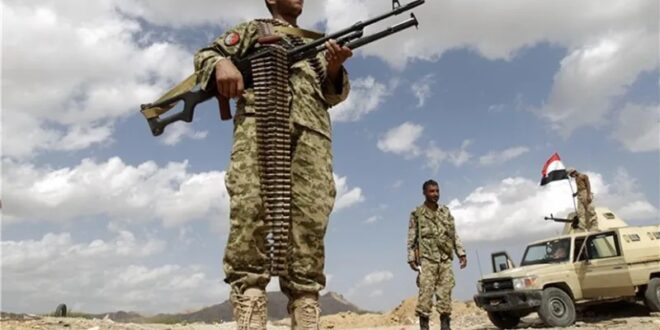The war in Yemen intensified over the past weekend as tit-for-tat attacks were reported between Iran-aligned Houthis and Saudi-led coalition.
On Saturday, the Houthis claimed that they fired 14 drones in several cities in Saudi Arabia in response to what the group described as Saudi aggression and the continuation of its crimes and siege of Yemen.
Yahya Sarea, the Houthis’ military spokesperson, said the group hit Aramco refineries in Jeddah and struck several military targets in Abha, Jizan, and capital Riyadh. But some of what Sarea said was found to be inaccurate casting doubt over the Houthis’ claims.
The Saudis nonetheless matched the number and responded with 13 targeted attacks on the Houthis’ air defence systems, weapons depots, and drones’ communication systems. The air raids hit Sanaa, Saada, and Marib provinces in Yemen.
The crisis in Yemen first escalated when the Houthis took control of large areas in 2014 allegedly with the backing from Tehran—Riyadh’s regional foe. The Saudis entered the arena a year later to make sure a friendly government was in power in their neighbourhood. But the events inadvertently made Yemen yet another proxy battleground between the arch-rivals.
More than 230,000 Yemenis have died in the war including women and children but Saudis and Iranians are nowhere close to an understanding that could end the conflict and the bloodshed.
The Houthis have been carrying out rocket and drone strikes in Saudi Arabia since 2015 but not always for themselves. Often Saudi territory was attacked right after Iran felt it had to send a message to the United States or its allies in Riyadh.
The bitter battle for supremacy of the Middle East picked pace between Tehran and Riyadh in 2018 after American President Trump walked out of the nuclear deal. Trump intended to not just tighten loose ends in the accord to make sure Iran could neither make a bomb nor procure long-range ballistic missiles but also force it to stop supporting its militias in the region.
As Joe Biden became the USA’s President he started talks with Iran to revive the nuclear deal. While nothing has been achieved so far the talks are supposed to resume later this month.
Saudis and Iranians too came to the talking table this April in Baghdad and at length discussed Yemen. But no headway has yet been made.
Oil-rich Marib in Yemen is deeply contested and is key to a resolution. It once fulfilled 40 percent of Yemen’s electricity needs and provided cooking gas to 29 million people. 120kilometres east of Sanaa, it is flooded with oil and brimming with gas fields—a place of interest for global energy giants with a potential for massive investment.
It has emerged as the biggest prize that the Houthis hope to secure and later use as leverage on the negotiating table. It is increasingly the site of fighting between the group and the Saudi-led coalition. Ahmad Awad Bin Mubarak, the Foreign Minister of the Saudi-backed Yemeni government, said that the fall of Marib will mark the “end of the political and peace process in Yemen.”
The peace efforts initiated by the United Nations have foundered in the long civil-war in Yemen and neither Saudis nor Iran-backed Houthis seem willing to back down. “The failure of the Iranian project in Yemen will ensure the failure of the Iranian project and the entire region,” said Foreign Minister Mubarak, “Its success in Yemen will usher in a new phase of conflict and lead to another cycle of violence.”
The toll on human lives and dignity has been severe in the battle for Yemen. Nearly 2.3 million children under the age of five are estimated to be severely malnourished and hundreds of thousands risk dying without receiving any treatment. 20 percent of the people have no access to basic healthcare and half of the population does not have access to safe drinking water.
Yemen is strategically located on a strait through which much of the world’s oil and other shipments cross. An escalation of conflict in Yemen should worry us all.
 Eurasia Press & News
Eurasia Press & News




